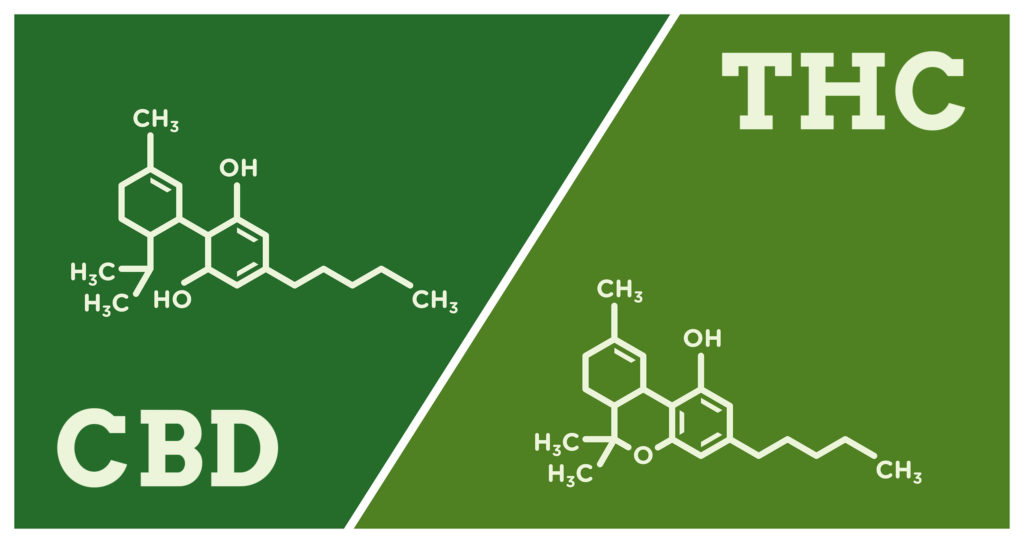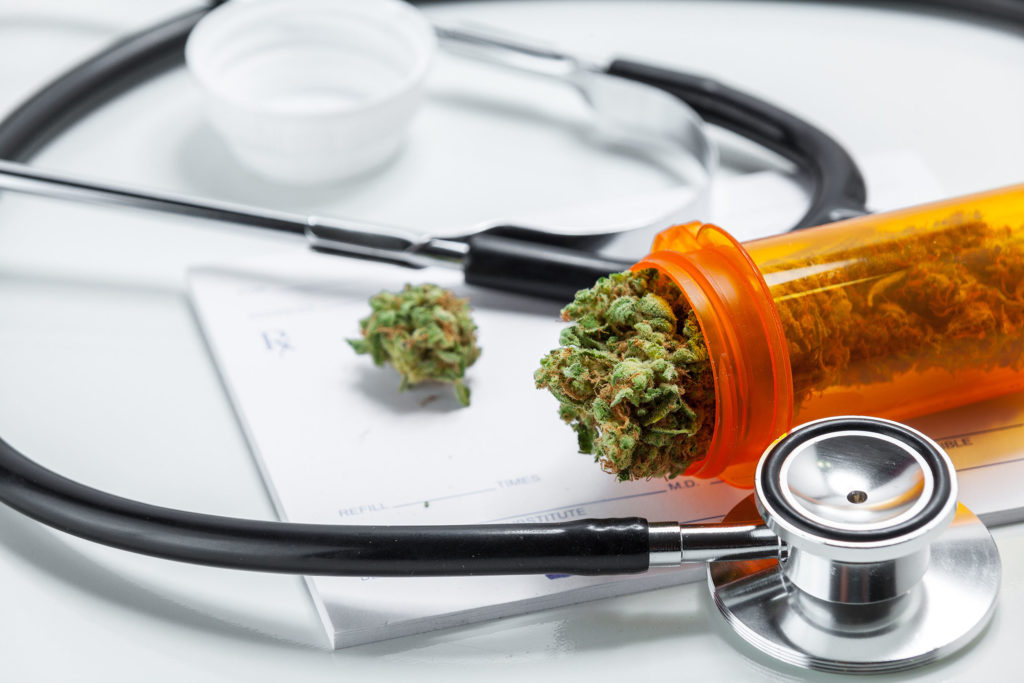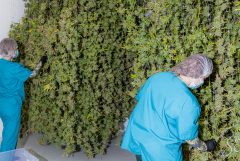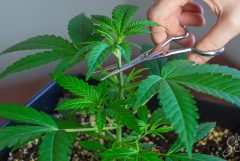Crohn’s disease is an aggressive condition that affects thousands of people around the world. Because of weed’s anti-inflammatory powers, it is said to have enormous effects on those with the symptoms of Crohn’s. To learn more about whether weed can be used for Crohn’s or not, read here!
The power of medicinal cannabis to treat a huge variety of symptoms and diseases is becoming more and more accepted. And while many of us accept that cannabis has the power to deal with things such as inflammation, pain and muscle spasticity (just to name a few), there are few who understand how this all plays a role in treating specific medical conditions.
When we take a deeper look at conditions such as Crohn’s Disease, the way weed works becomes a little bit more transparent.
While the use of medicinal cannabis doesn’t necessarily cure Crohn’s Disease, it treats symptoms such as inflammation, which is one of the main causes of discomfort. Modern science is only just catching up to the ways that medical cannabis can help because of how understudied it has been.
For many patients with Crohn’s, it can take years to find an appropriate treatment. It can be an extremely debilitating disease with a lot of discomfort. And as far as modern science knows, there are only certain ways of managing symptoms with prescription medication, but none that give long term relief.
Medical cannabis gives some sufferers of Crohn’s a way to manage symptoms without having to go through the conventional medical treatment, which can often end in unwanted side effects. This article is an in-depth look at Crohn’s disease, its causes, its symptoms and the potential for therapeutic cannabis to be an answer.
What is Crohn’s disease?
We know very little about Crohn’s and what causes it. We observe that it is a disease that attacks the bowels and the gastrointestinal tract, causing inflammation. This means it can affect a person in their intestines, their stomach or even up to their throat. Most sufferers of Crohn’s experience their discomfort in the colon or in the very last part of the small intestine. It is kind of like always having irritable bowel syndrome.
Up until now, scientists can only theorize why people contract Crohn’s disease. Some believe that it is a genetic problem that disrupts the immune system. Others believe that it has to do with an imbalance of gut flora. The last point could be a clue as to why weed is so effective at treating the symptoms of Crohn’s.
In general, patients with Crohn’s can experience stomach cramps and pain, severe diarrhoea, bleeding and a basic inability to keep any weight on. Crohn’s makes it extremely difficult for the body to be able to absorb the nutrients it is being fed. This can make it even harder for the body to recover from its condition. A person can literally end up feeling as though they are ‘wasting away’.
Most patients with Crohn’s develop the condition later in life and can come about completely unexpectedly. It requires instant attention and lifestyle changes that can be hard to keep up with.
THC in cannabis reduces inflammation

Cannabis can be extremely effective in those with Crohn’s because it has the power to reduce inflammation. We know this from research that shows that THC decreases inflammatory reactions in the body.
Inflammation is arguably the biggest symptom of Crohn’s and the hardest to manage. Doctors generally advise patients to manage inflammation by making dietary changes. This usually means avoiding foods that cause inflammation, such as sugar.
There are some doctors who recommend opiates as a means of dealing with some of the pain related symptoms of Crohn’s. However, there is some concern that opiate treatment can increase the chances of infections in the bowel and doesn’t address the issue of inflammation.
Cannabis’ interaction with the endocannabinoid system promotes an anti-inflammatory response. This explains why cannabis is also used to treat patients suffering from Multiple Sclerosis as well as arthritis.
For many patients, the reduction of inflammation starts the healing process. It can be a ‘doorway’ into recovery. Just like when someone gets an injury, the medic’s most important priority is bringing the inflammation down to then begin treatment.
THC plays other integral roles in the treatment of Crohn’s disease, such as epithelial permeability. This has to do with how quickly a wound closes and is no longer susceptible to infection. Cannabinoids such as THC have the ability to increase the speed at which this healing takes place. For patients of Crohn’s, it refers specifically to wounds caused in the colon.
CBD protects the gastrointestinal tract
There is also evidence to suggest that CBD protects the gastrointestinal tract. When the body is in an inflammation response, it produces a substance called interleukin-17, which is a pro-inflammatory substance. This substance damages the mucous in the GI tract, which causes more complications for those with Crohn’s disease.
CBD comes in to reduce the damage that takes place to the mucous in the GI tract. In the case that the body is still having the pro-inflammatory response, at the very least the person’s stomach can be slightly more protected.
How the endocannabinoid system can help

Interestingly, there are cannabinoid receptors all over the gastrointestinal tract. This means that in the activation of the endocannabinoid system, it is one of the primary places that is targeted first.
The stomach and the oesophagus are basically lined with cannabinoid receptors, and those receptors are found especially in the immune cells of this part of the body.
The reason this is so interesting is because firstly, we mentioned that scientists think Crohn’s is caused by a weak immune system. Secondly, we mentioned that some scientists attribute Crohn’s to an imbalance in the bacteria of the stomach.
Both might be potential reasons for the expression of Crohn’s disease in a person. The endocannabinoid system targets both potential reasons.
If the immune cells of the gastrointestinal tract are triggered by the activation of the endocannabinoid system (which might have been activated by cannabis), the person might feel a relief from their symptoms.
Furthermore, the purpose of the endocannabinoid system from a greater perspective is balance and homeostasis. When the endocannabinoid system is operating efficiently, the gut flora should be regulated by it.
It seems that cannabis might be working to treat Crohn’s disease from several different angles. In any case, we don’t know exactly how it is working. We can only make our observations and assumptions. But what comes next is the evidence that we can observe, which is the changes that happen to those patients with Crohn’s who start using cannabis.
A clinical study
There haven’t been many clinical studies about the effects of THC and CBD, because attaining the rights to hold these experiments can be difficult. However, in 2013 there was a controlled study that took place with 21 sufferers of Crohn’s disease. The 21 patients selected for the study were suffering severe symptoms and at the time of the study were not responding to the medications that they were being offered.
The group was separated into two, with one being the cannabis group and the other being the control group. The cannabis group were administered 115mg of THC per day for 8 weeks. Of those who were in the cannabis group (11 people), 5 of them went completely into remission. 10 of the 11 reported that their symptoms had improved and 3 of the 11 patients came off steroid treatment entirely.
One of the only problems with this research is that they administered THC to the patients through the smoking method, whereas we know that edibles or oils can be much more effective. This is so because it will entire via the stomach, which is where the majority of the problems are.
Anecdotal success stories
There’s no shortage of people out there who are trying medical cannabis because the modern medicine system simply isn’t working for them. It is really inspiring to hear about the myriad of ways that weed is helping sufferers of Crohn’s take control of their symptoms and get on with their lives.
Shona Banda is one of those patients who was diagnosed as terminally ill with Crohn’s Disease. Before turning to weed as alternative therapy, Shona underwent several surgeries and was heavily medicated.
Finally, doctors told her that Crohn’s Disease was eventually going to kill her. In a fight to save her own life, Shona started using medical cannabis and made an incredible recovery. She even authored a book about it called Live Free Or Die.
Matthew Lonsdale is another example of the fight with Crohn’s. The side effects of immune suppressant medications forced him to live with Crohn’s completely untreated.
He lived with severe abdominal pain and the constant need to go to a toilet. He was even unemployable as a result of needing a restroom every few minutes. As it played out for Matthew, he and a friend one day decided to split a hash brownie. His discovery of medical cannabis turned out to be his best accident.
Finally, teenager Coltyn Turner also discovered the power of medical cannabis to treat Crohn’s disease. Unlike our other examples, Coltyn developed Crohn’s before reaching 11 years old. He became so chronically ill that he couldn’t stand up for long periods of time.
At age 16, he started taking drops of cannabis oil four times a day. His symptoms started improving dramatically until he was the active teenager that he should be. His Crohn’s finally went into remission and he became 2015’s Cannabis Advocate of the Year.
More than the clinical research, there are so many personal success stories of people using cannabis to treat their Crohn’s.
Some of those stories are of people who literally couldn’t hold a job because of their toilet habits. But they managed to make full recoveries with the use of cannabis. It is so touchy to talk about a medicine for which science doesn’t really want to back up. For most, the writing is on the wall.











Thank you for this useful information. I have been suffering from Crohn’s for a long time and through years I have observed that people are ignorant about it. One has to take this medical condition seriously as it can have long-term effects.